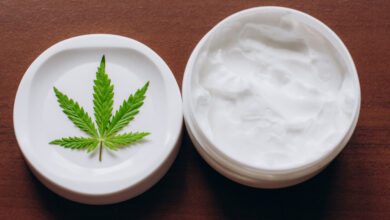Vitamin Deficiency In Winters: Reasons, Symptoms, And Sources

The question of what vitamins to take in winter is acute for most people with the onset of cold weather. In winter, the risk of colds of bacterial and viral origin increases. To protect yourself and your family members from viral flu epidemics, you need to strengthen your immune system. The best helpers in this matter are vitamin complexes.
With a deficiency of micro-and macronutrients, the protective properties of the body decrease, and deterioration in physical well-being is observed. There are several symptoms for the lack of vitamins: the formation of spots and streaks on the nail plates, hair loss, dryness, peeling of the skin, etc.
Reasons For Vitamin Deficiency
There are multiple reasons for such deficiency in the body. Some of them are:
- Bad Habits: When people do not observe a healthy lifestyle, several deficiencies occur in the body.
- Drinking Alcohol: Alcohol hinders the absorption process of necessary minerals in the body. Only through detox treatment and removal of harmful toxins, a body can regain these vital nutrients.
- Lack Of Sunlight: Due to a lack of sunlight, the body is not able to produce enough vitamins.
- Improper Diet: By not eating foods that are rich in vitamins and minerals, a person’s health suffers.
Which Vitamins The Body Lacks In Winter
The list of deficient vitamins and minerals for each person is individual. You can identify the lack of a substance by taking a blood test or a urine test. Sometimes, there is also a deficiency of zinc and copper. Zinc gets quickly excreted during hypothermia in winter and also gets consumed in viral and bacterial diseases. It is one of the essential vitamins that provide protection against colds.
Iron deficiency is often present in women of reproductive age due to monthly, physiological blood loss, vegans, and people with latent bleeding. It requires immediate replenishment. Since long-term shortage can cause hypoxia, oxygen starvation, decreased mental, physical performance, and increased susceptibility to colds.
Vitamin A
It is a fat-soluble substance present in carrots and marine fish. A substance deficiency is often found in people with genetic mutations. In such a situation, the intake of a valuable substance with food is difficult. A deficiency condition cause itching of the skin, seizures, palms, and heels may turn yellow.
With a deficiency, dysfunction of the thyroid gland may also appear due to the high risk of developing hypothyroidism. Twilight vision worsens, hair falls out, and a person becomes susceptible to frequent infections.
Vitamin C
The human body constantly needs vitamin C. It is one of the main antioxidants, along with A, E, and selenium. It gets quickly excreted in the urine, participates in most biochemical reactions, including collagen synthesis. For proper functioning, a person must take it from foods and dietary supplements, as well as complexes.
Vitamin E
The deficiency leads to such a serious complication as the breakdown of erythrocytes with the subsequent risk of developing hemolytic anemia. Nerve fibers get destroyed, the skin becomes dry, cracked, and bulky appear.
Women may experience changes in the menstrual cycle, difficulties when trying to get pregnant and bear a child. Men face potency problems due to a lack of vitamin E.
Vitamin B
Depending on the type of food, diet, individual characteristics of the organism, there is often a shortage of vitamin B. It also depends on the state of the intestinal microflora. In a normal state of the intestinal microbiome, representatives of the microflora are able to independently synthesize a number of vitamins.
This provides the body with the necessary vitamin like B12. Under stress, uncontrolled use of antibiotics, malnutrition, the state of the microflora deteriorates significantly. And the independent production of vitamins and trace elements get disrupted.
Vitamin D
In the winter season, the body is deficient in fat-soluble vitamins: A, E, D, as well as polyunsaturated fatty acids. During the summer months, you can obtain these nutrients from food. You can also get it by staying in the fresh air or in direct sunlight.
However, in winter, nutrient delivery gets slowed down or disrupted. It is a prohormone, receptors for which are present in all tissues of the body. The body produces it when it comes in contact with direct sunlight.
How To Recognize Lack of Vitamins
In the cold season, there is a total deficiency of vitamins and trace elements. These deficiencies get obvious when the body display the following symptoms:
- Fatigue, persistent weakness, decreased mental and physical performance.
- Susceptibility to frequent colds.
- Deterioration of the skin condition: dryness, rashes, itching, irritation, redness, cracks.
- Hair loss, brittle hair, and early grey hair
- Slowing down metabolic processes: overweight without the ability to lose weight and long wound healing
Other, less specific, individual symptoms are also possible:
- Blurred vision
- Blurred hearing,
- A tendency to form hematomas
- Pain in muscles
- Pain in bone tissues
To determine the deficiency of nutrients, it is necessary to take a blood and urine tests.
Foods Rich In Minerals
You can get the optimal amount of vitamins, minerals, amino acids, and other nutrients from a varied diet. According to many naturopaths, all the colors of the rainbow should be present on a person’s plate. The brighter the food, the more antioxidants and vitamins it contains.
It is important to know which foods are rich in certain vitamins and microelements in order to properly form a daily diet:
- Iron Sources: Offal, spinach, leafy greens, whole-grain baked goods, flax and sesame seeds, and cherry leaves.
- Vitamin A: Fresh fish, caviar, liver, meat, chicken eggs, cream, fat cottage cheese, butter, sea fish, and fish oil.
- Calcium: Sesame seeds, dairy products, buckwheat, oatmeal, eggs, chicken yolks, fish, hazelnuts, shrimps, and beans.
- Iodine: Seaweed, iodized salt, fish, garlic, strawberries, cereals, buckwheat, and millet.
- Vitamin E is rich in vegetables, unrefined oils, and seeds.
- Zinc: Beef, pork, poultry, potatoes, seafood, eggs, nuts, legumes, asparagus, cauliflower, seeds: sunflower, pumpkin.
- Vitamin D: Whole milk, eggs from free-range and grass-fed hens, oily sea fish, and butter.
- Vitamin K: Citrus fruits, broccoli, white cabbage, tomatoes, Brussels sprouts, parsley, potatoes, radishes, bell peppers, sorrel, sea buckthorn, and black currant.
It is important to remember that you cannot fill the existing deficiencies with food. In this case, you need to get supplements prescribed by doctors.
Generic Adderall
Swallow either drug whole with water. You can take them with or without food. Some people prefer to take their medication with breakfast so it won’t upset their stomachs. If you have trouble swallowing Adderall, you may open the capsule and mix the granules with food. Do not cut or crush Concerta, however. You can buy Generic Adderall 30mg Online here.






